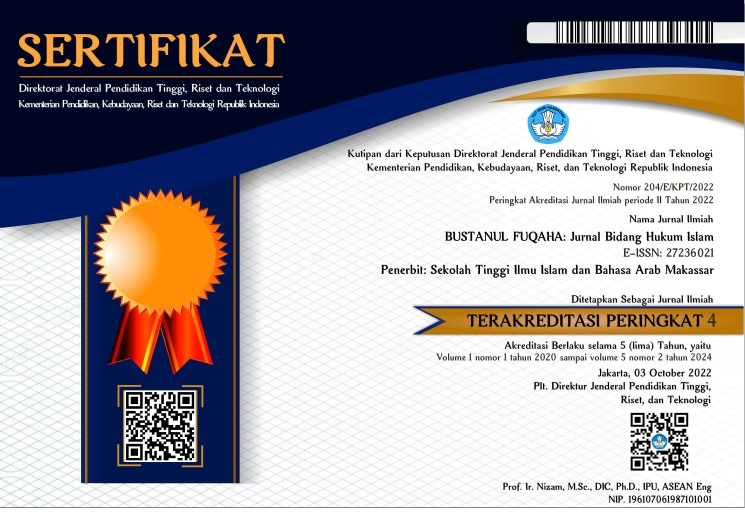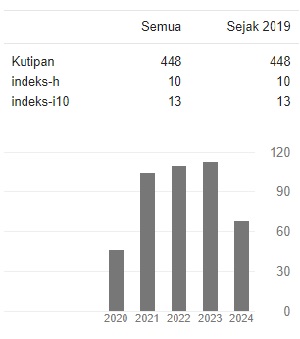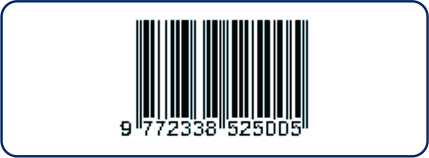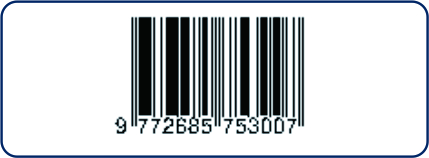No Results
Information

Browse
User



BUSTANUL FUQAHA: Jurnal Bidang Hukum Islam
Pusat Penelitian dan Pengabdian Masyarakat (P3M), Sekolah Tinggi Ilmu Islam dan Bahasa Arab (STIBA) Makassar
Jl. Inspeksi PAM, Manggala, Kota Makassar, Sulawesi Selatan, Indonesia, 90234.
Copyright @ Pusat Penelitian dan Pengabdian Masyarakat (P3M), Sekolah Tinggi Ilmu Islam dan Bahasa Arab (STIBA) Makassar, Indonesia. All rights reserved.









